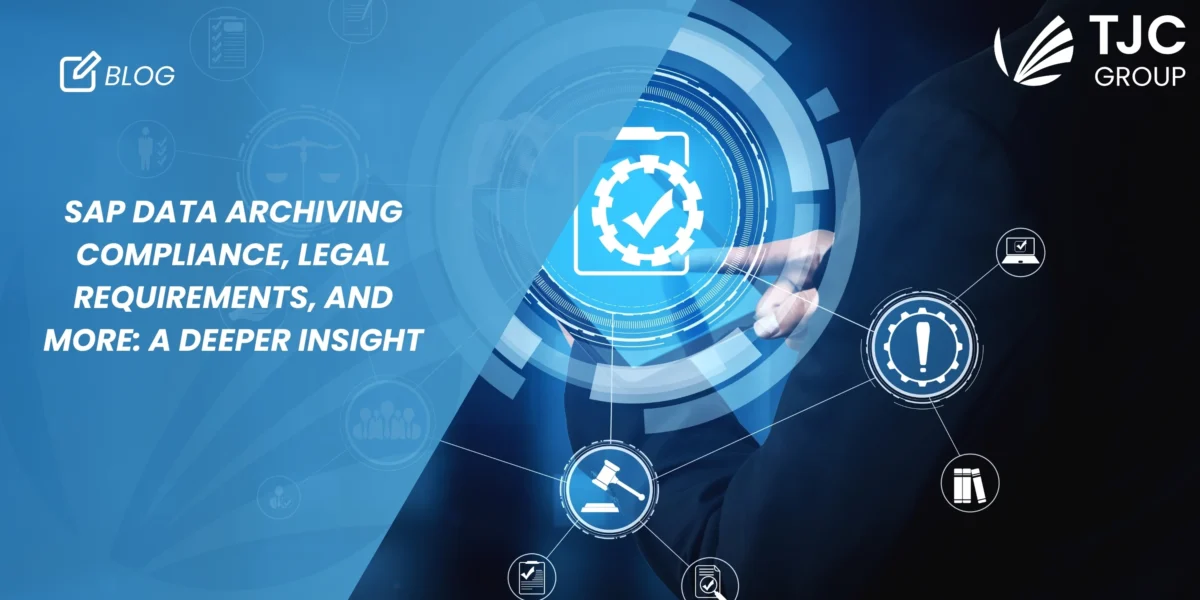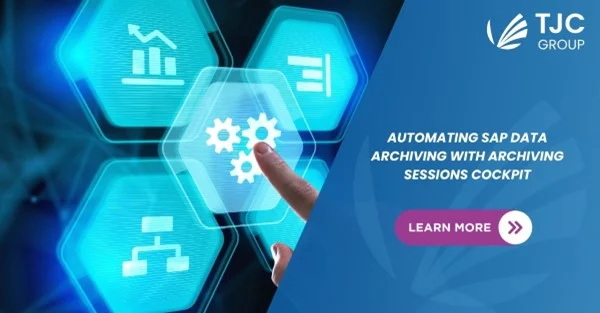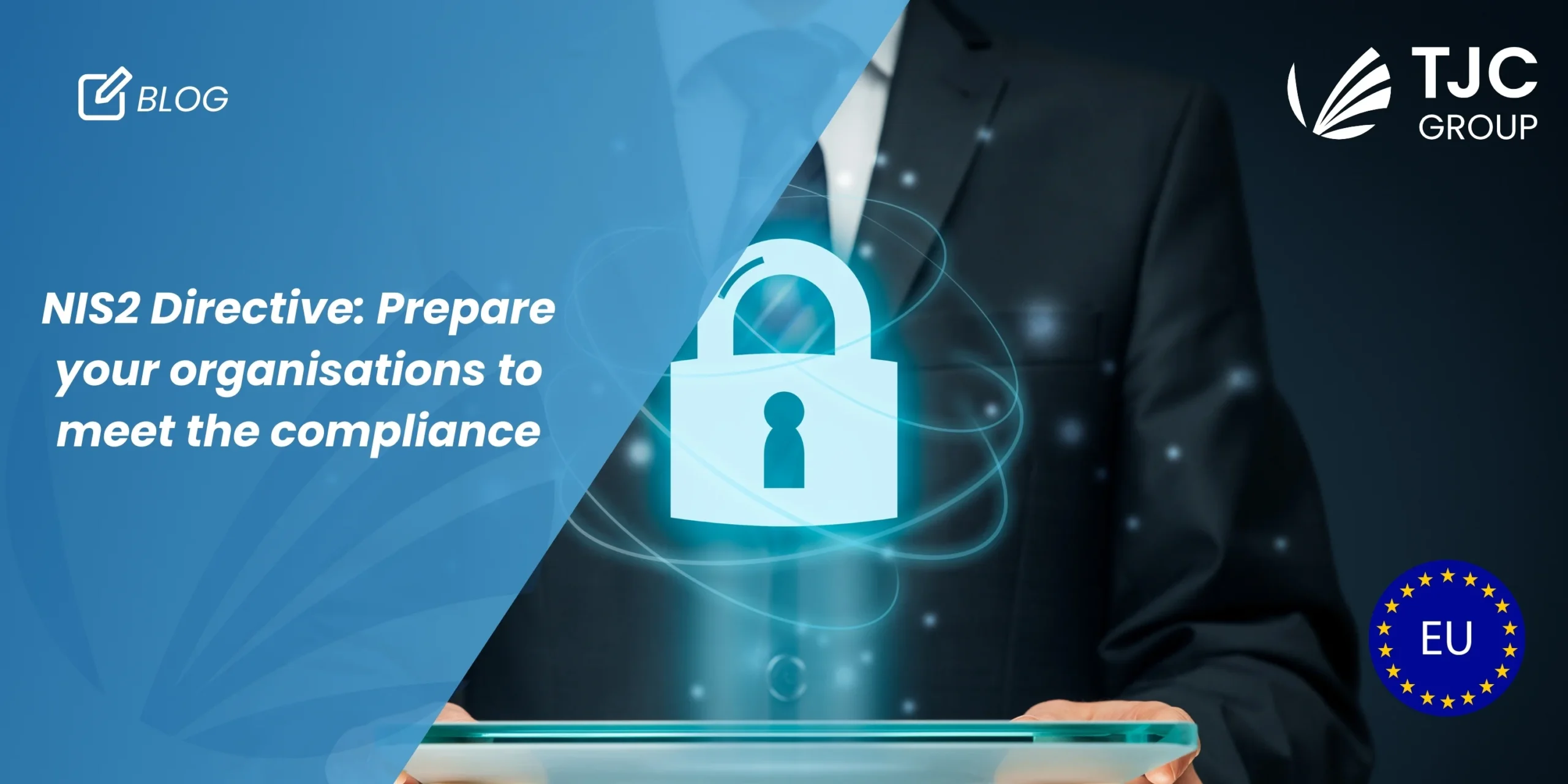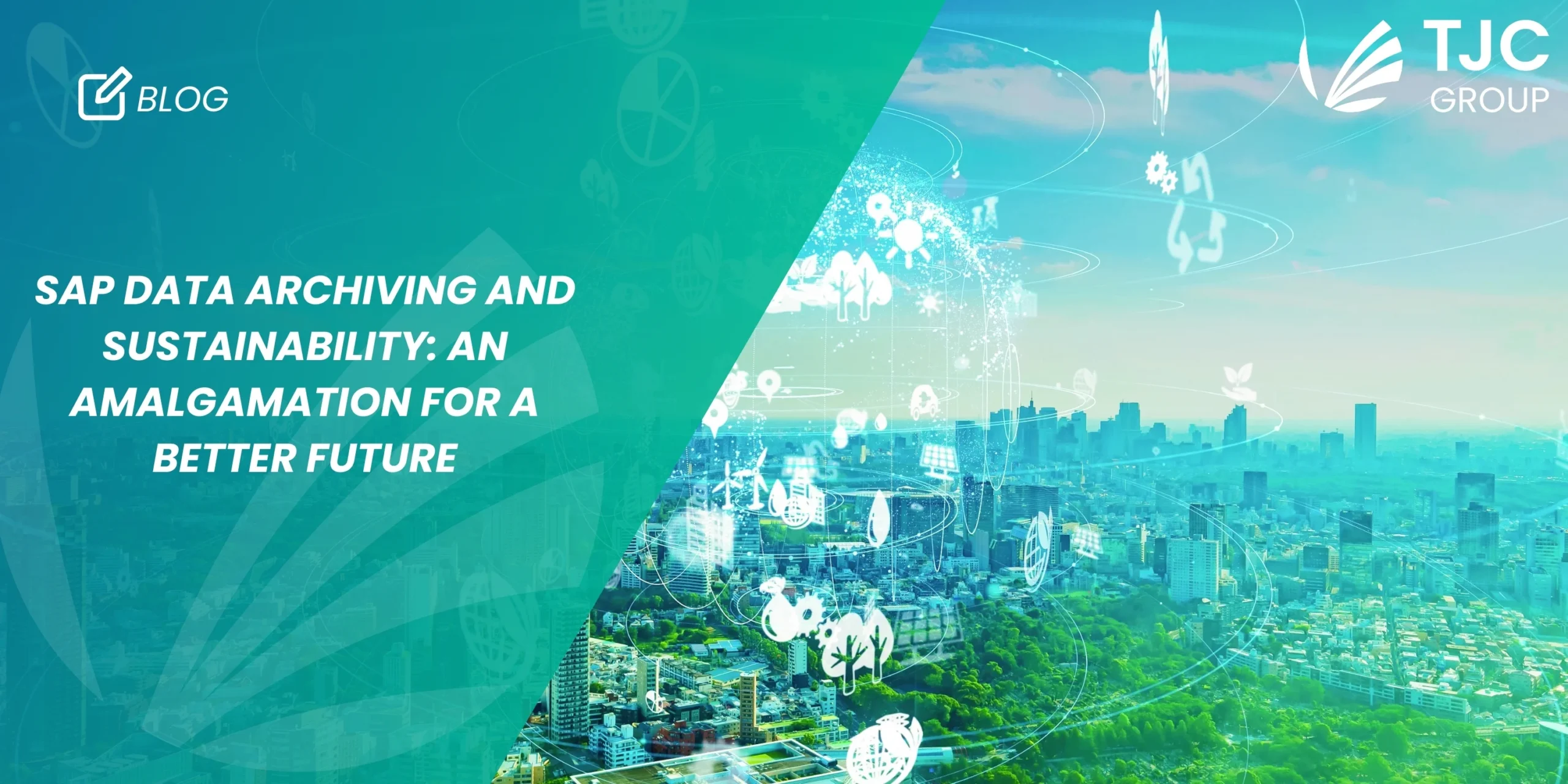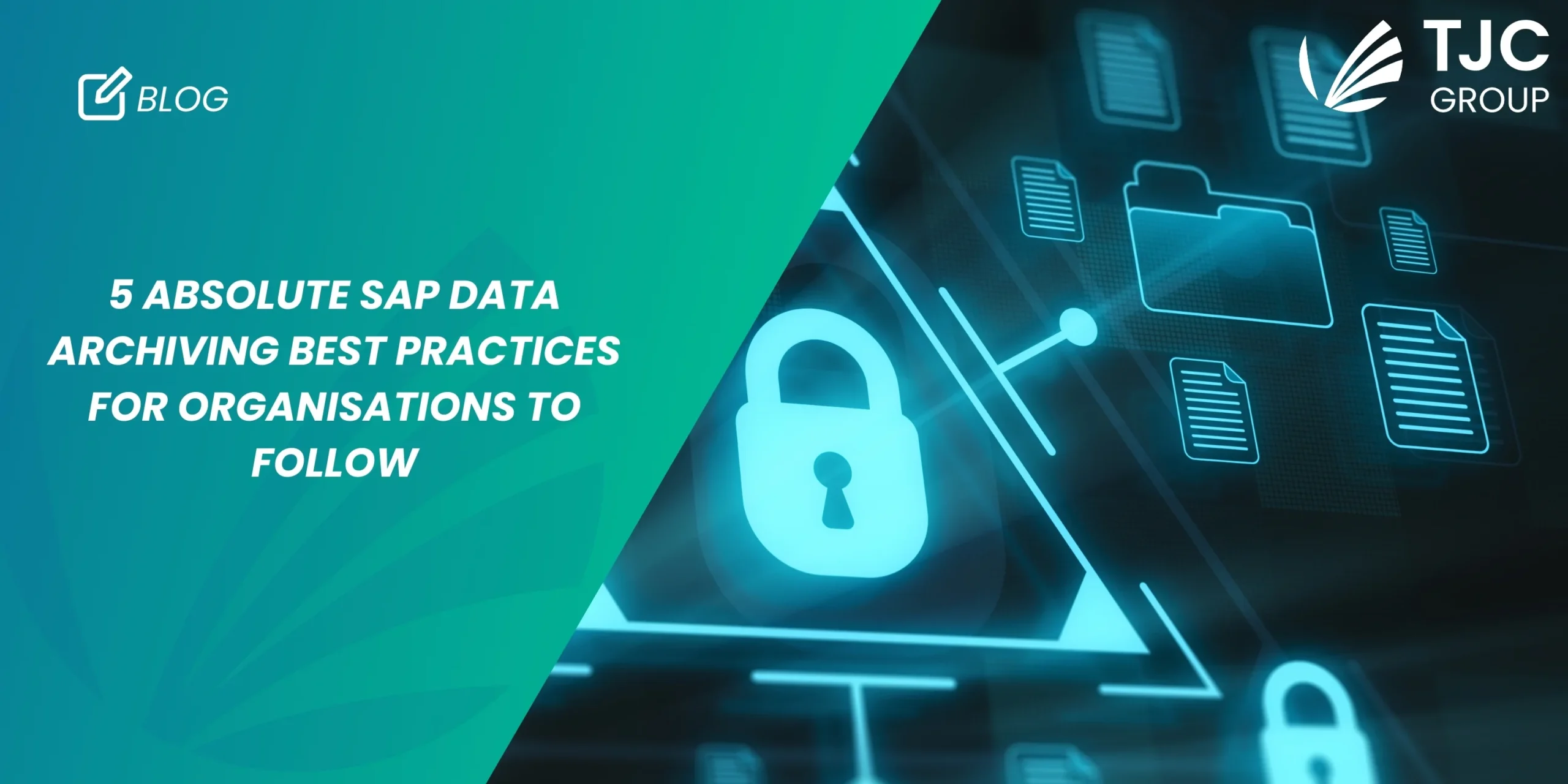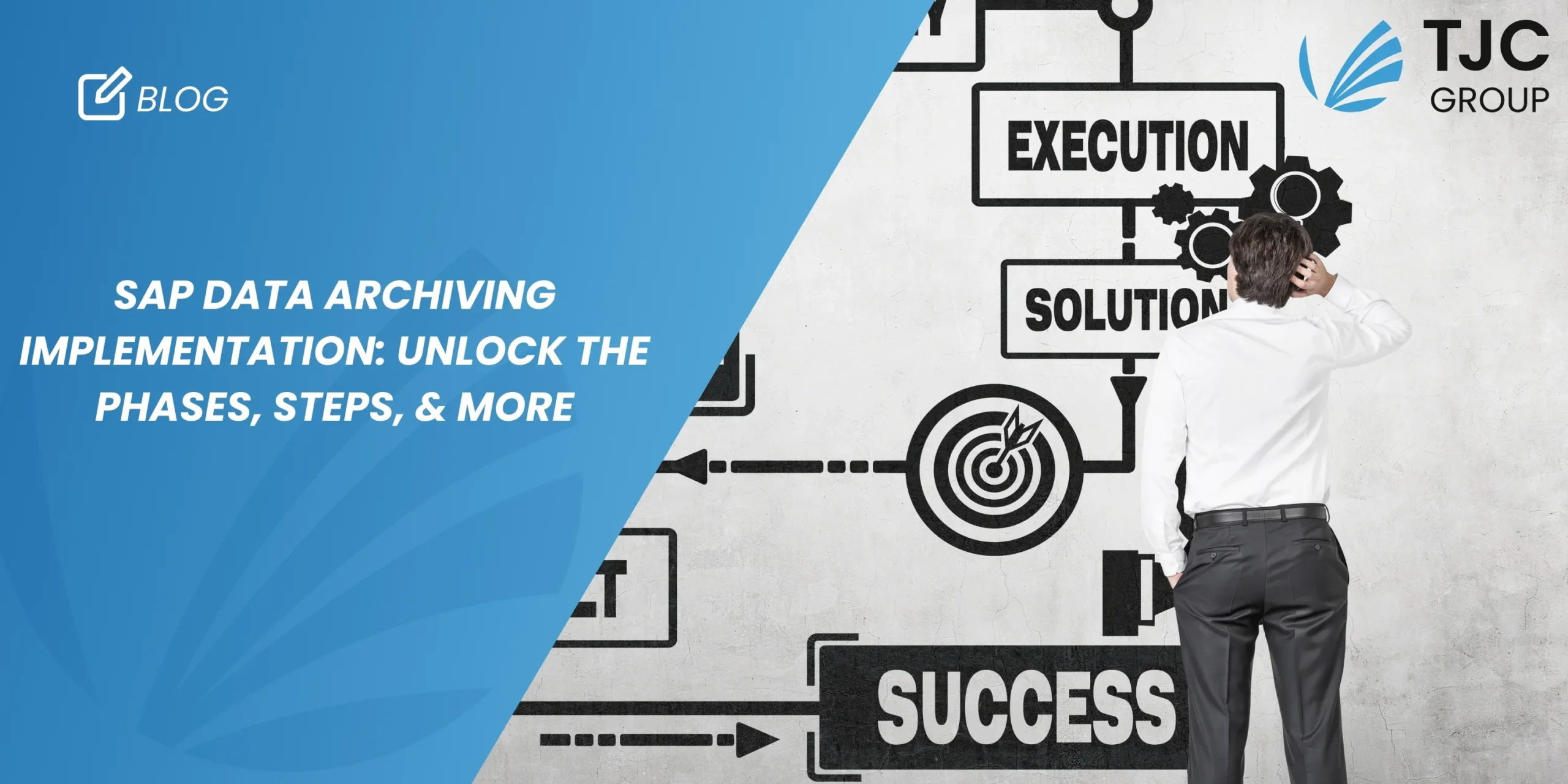Author: Priyasha Purkayastha, Global Content Manager, TJC Group
The benefits of data archiving pertaining to system performance, lower storage cost, etc., are often spoken of. However, the advantages of archiving go beyond them. From legal compliance (data privacy) to data security, archiving contributes to organisational efficiency in many ways. In this blog, let’s talk about how SAP data archiving, compliance, and data security work hand-in-hand. Read on!
Table of contents
- Data security: What do you need to know?
- A quick overview of vulnerabilities in systems
- SAP data archiving: Legal requirements, compliance, and more
- Bringing data privacy into the picture
- SAP data archiving for compliance and data protection
- Applying SAP data archiving compliance with Archiving Sessions Cockpit
Data security: What do you need to know?
Data security means protecting data from malicious attacks, unauthorised access, breaches, thefts, and so on. The hypernym or umbrella term for data security is cybersecurity—a set of procedures and tools backed by robust policies, such as network monitoring, password management, data encryption, etc. In fact, these policies and procedures are in place to secure data from external or internal cyberattacks.
Surprisingly, cybercrimes have spread across IT, lifestyle, retail, and even the government. Whether small, medium, or large – businesses facing even a single attack can have devastating effects. What’s even more shocking is that the more data your organisation contains, the higher the potential for data breaches. In addition to this, hidden vulnerabilities in your systems are also responsible for the cyber breaches as they are not patched or updated. Therefore, apart from SAP archiving legal requirements, organisations must step up their data security measures to protect their business-critical data and systems.
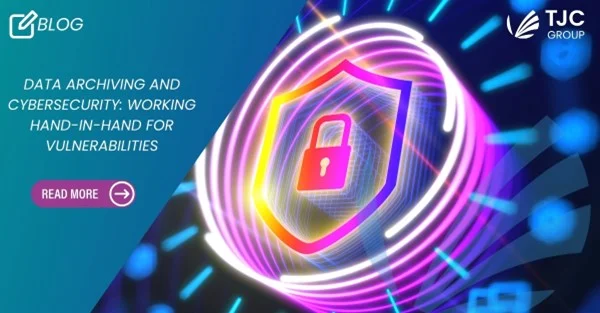
A quick overview of vulnerabilities in systems
Attacks or breaches of data security aren’t limited to phishing or hacking scams anymore. Unfortunately, with digitalised advancements in the future, criminal minds are also evolving to be more malicious. As a matter of fact, the IT infrastructure of all sectors is threatened by internal collaborators, nation-states, corporate spies, and much more. Having said that, cyberattacks have also evolved into cloud breaches, IoT attacks, Cryptojacking, Cyber Crime-as-a-Service (CCaaS), supply chain attacks, Advanced Persistent Threats (APTs), SQL injection, and so on.
For data protection in SAP archiving, it is imperative to keep in mind that the vulnerabilities in your systems can come from different sources; however, the most common ones are –
- Obsolete or unpatched software
- Misconfigurations in the systems
- Weak credentials for authentication
- Poor data encryptions
- Incomplete authorisation policies.
Speaking of vulnerabilities specific to SAP systems, a few illustrative ones are as follows:
- SAP NetWeaver: CVE-2022-22536: SAP Note 3123396 and CVE-2019-0328: SAP Note 2758144
- NetWeaver Application Server Java: CVE-2020-6287: SAP Note 2934135, CVE-2019-0321: SAP Note 2758146, CVE-2018-2380: SAP Note 2562333, and CVE-2021-27610: SAP Note 3037518.
SAP data archiving: Legal requirements, compliance, and more
SAP data archiving compliance – whether legal or regulatory, is a continuous process to ensure adherence to the laws, regulations, and policies for better governance of organisational activities. It is a hands-on approach that helps identify, understand, and implement requirements necessary for compliance. Additionally, meeting legal requirements for SAP archiving mitigates any risks associated with it, thereby ensuring no penalties or reputational damages. As a matter of fact, complying with legal and regulatory requirements builds trust between stakeholders, enabling organisations to operate ethically.
Organisations cannot take legal compliance casually because if the rules are breached, it will be quite expensive; in fact, failure to comply with the regulations will lead to financial damages to both organisations and the individuals at fault. Apart from this, if organisations do not meet the compliance requirements, they might face disciplinary actions, civil liability, loss of reputation, and goodwill.
Bringing data privacy into the picture
In SAP archiving, data protection comes as a sought-after benefit for organisations. But why is protecting data so essential?
To give you a general overview, data privacy refers to the management of crucial personal data, often known as Personally Identifiable Information (PII) and Personal Health Information (PHI). These include an individual’s financial data, health records, social security numbers, etc. However, in the context of business, data privacy extends beyond just the PII and PHI of your suppliers, employees, and clients. In addition to the PII and PHI, several other factors, like company data, confidential agreements, business strategies, and so on, are also included here. Here’s when, for data privacy compliance, SAP data archiving comes in handy.
Before moving on to the importance of SAP archiving for legal requirements, it is important to understand why data privacy is essential for regulatory compliance. Overall, data protection helps –
- Preserve the autonomy of individuals
- Ensures ethical data practices
- Helps enable innovation driven by data
- Builds trust, confidence, and reliability amongst stakeholders, clients, and employees
In fact, several data privacy laws are in place to ensure the protection of information collected by organisations. GDPR in the EU, Loi 25 in Quebec, CCPA in California, APPI in Japan, DPDP in India, and many more are some noted data protection laws.
SAP data archiving for compliance and data protection
For data protection, SAP archiving in your systems is a must. The fact of the matter is that we are surrounded by personal data – right from records in the HR systems to supply chain management, data is scattered everywhere. If we look at the SAP modules, we can see there are multiple documents and tables containing data as well as CRMs, and so on. Keep in mind that these data are not just basic ones; they may go beyond. As a matter of fact, personal data is included in all sorts of documents – right from the invoices generated by organisations to emails, payslips, contracts, and more.
However, you cannot store these data in SAP systems without a purpose; here’s when SAP data archiving compliance benefits come into the picture. Applying the ever-evolving data protection laws can be a challenging task. The following steps can ease the process –
Step 1: To meet legal requirements with SAP archiving, the first step is to identify the personal data and the reason behind collecting it. Additionally, you also have to identify the storage location of the collected data.
Step 2: The second step is to define the data retention rules, rules for data blocking, and data deletion after the defined periods. Keep in mind that the determination of retention periods is as per the purpose of personal data collection. The purposes can differ, ranging from application management to order management etc.
Step 3: In the third step, SAP ILM Retention Management comes into play. This helps archive, delete, and sometimes anonymise personal data. At times, a few data might be needed for future audit purposes; therefore, for data protection in SAP, archiving is a must.
It is important to keep in mind that there is no specific or single solution for handling data privacy in SAP systems. Instead, there is an amalgamation of solutions and tools. Having said that, note that with SAP data archiving, compliance and legal requirements are met, along with data retention for audit purposes.
Applying SAP data archiving compliance with Archiving Sessions Cockpit
As mentioned above, for data protection in SAP systems, you have a combination of tools and solutions. However, a key solution is the SAP ILM Retention Management (RM), along with a feature called Blocking & deletion for master data that SAP provides. With SAP ILM RM, organisations can also define their data retention policies and destruction policies once the retention period ends. In addition to SAP ILM, there are also other tools that organisations can opt for to ensure compliance with SAP data archiving, like the Archiving Sessions Cockpit (ASC) by TJC Group. This software is the brainchild of TJC Group, which automates the entire archiving process, delivering more effective results.
Click on the banner below to learn more about the ASC software:
If you are looking for partners who can help you meet legal requirements via SAP archiving, TJC Group is your go-to choice. With 25+ years of experience in data archiving and overall data management, we ensure the best practices and strategies for archiving data while keeping data protection and compliance in mind. Contact us now to get a better understanding of this!


